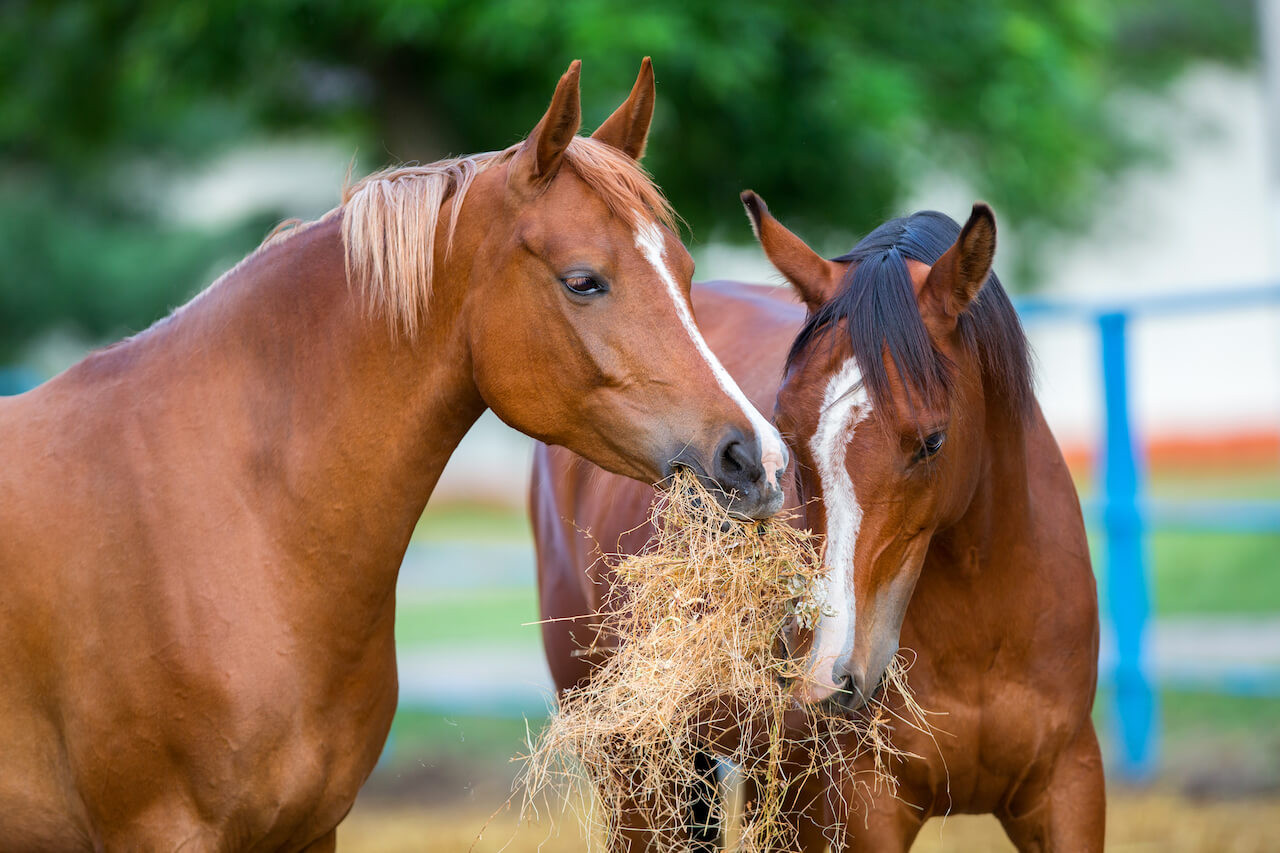2018 has been a record breaking summer due to the weather, and it’s not over yet. The long hot dry spell has led to many horse owners worrying about hay and straw shortages this winter. But how likely is it and what can you do now to prepare for a shortage? Read on…
Winter of 2017/2018 was long, wet and harsh. Forage supplies such as hay and haylage was at an all time low in the spring as horses and livestock were kept in for longer than normal and the grass was slow to appear in the spring meaning much more hay and haylage was used than in previous years. Now add to that the very dry conditions over the last few months many producers of hay and haylage are seeing much reduced first cuts and without some more rain the prospect of a second cut is also looking poor. It is also expected that the quality of this years hay will be reduced.
The situation with straw is similar to hay although the dry weather should mean that straw quality remains good with less chance of damp and mould in the bales. The demand for straw will be high this year due to the shortage at the start of the season and the likelihood that many farmers may bring their stock in earlier than usual this year due to the lack of grass. Straw prices have increased rapidly due to the increased demand.
So what can you do now in preparation for winter? Here’s my top tips:
1. Plan ahead. Now is the right time to be thinking about the winters forage, don’t leave it too late. Think about how much you are likely to need (assume we have a long winter like last year). Where are you going to get it from and where will you store it?
2. Ideally source all your hay now, prices will only go up as the demand increases over the winter and as stocks are reduced it will be much more difficult to get hold of. If you don’t have room to store it perhaps think about negotiating with your supplier that they store it for you at a small cost.
3. Try to develop a good relationship with your supplier and stick with one source. If possible get a few of you together on a yard to buy from the same place. Suppliers will look after their regulars much better than people who only buy from them now and again. Make sure you communicate how much forage you anticipate needing over the winter so they can plan to give you a regular supply.
4. Start budgeting now for higher hay/haylage costs over the winter. You may need to consider cutting costs elsewhere such as lessons or competitions.
5. Ideally plan winter grazing to maximise what grass is available by rotating paddocks or strip grazing fields.
6. Accept that the quality of hay will be poorer this winter and ensure your horse gets enough nutrients from the hard feed to compensate. Good doers will be fine with forage of less quality but poor doers and fussy eaters may need more attention to avoid too much weight loss.
7. If you feel you may not have enough forage to see the winter out some hay can be replaced with chopped feeds such as readigrass, alfalfa and hi-fi. It is better to start early with the chop substitute alongside hay/haylage than to wait until you have completely run out and have to switch to chop altogether. Horses need long stemmed fibre for a healthy digestive system.
8. Straw can be added to haynets to bulk them out and add additional forage but straw may be equally difficult to source this year so is unlikely to provide a solution for many. If you can source some reasonable quality barley straw make sure the horse has plenty of access to clean water as straw can cause large intestine impactions.
9. Consider investing in a steamer to improve palatability and hygiene of forage. Especially later in the winter the hay quality tends to be reduced and the number of toxins and bacteria increased. Steamed hay is beneficial for any horse but especially horses prone to respiratory conditions or picky eaters.
10. Reduce wastage. Try where possible to minimise the amount of forage wasted, don’t overfeed or overface horses and think about using small hole haynets or other methods of slowing down the forage intake and reducing wastage. If you feed large bales in the field perhaps reconsider doing this or ensure the bale is on hard standing and invest in a big bale net to stop wastage and make hay supplies go further.
11. Don’t forget, weight loss in winter is perfectly natural and we should even be encouraging it (within reason). In the wild the horse’s weight would naturally drop over winter and increase over summer and studies have shown this is beneficial especially for horses with insulin resistance. Other than geriatric horses and poor doers that will benefit from losing as little weight as possible other horses can be kept in full work providing their vitamin, mineral and energy requirements are being met through their hard feeds.
If you’re worried about your horse’s diet, weight or nutrition contact one of the vets to talk through your concerns. I hope this article has been useful.
Jenny x
Veterinary Surgeon, Ridings Equine Vets Limited

